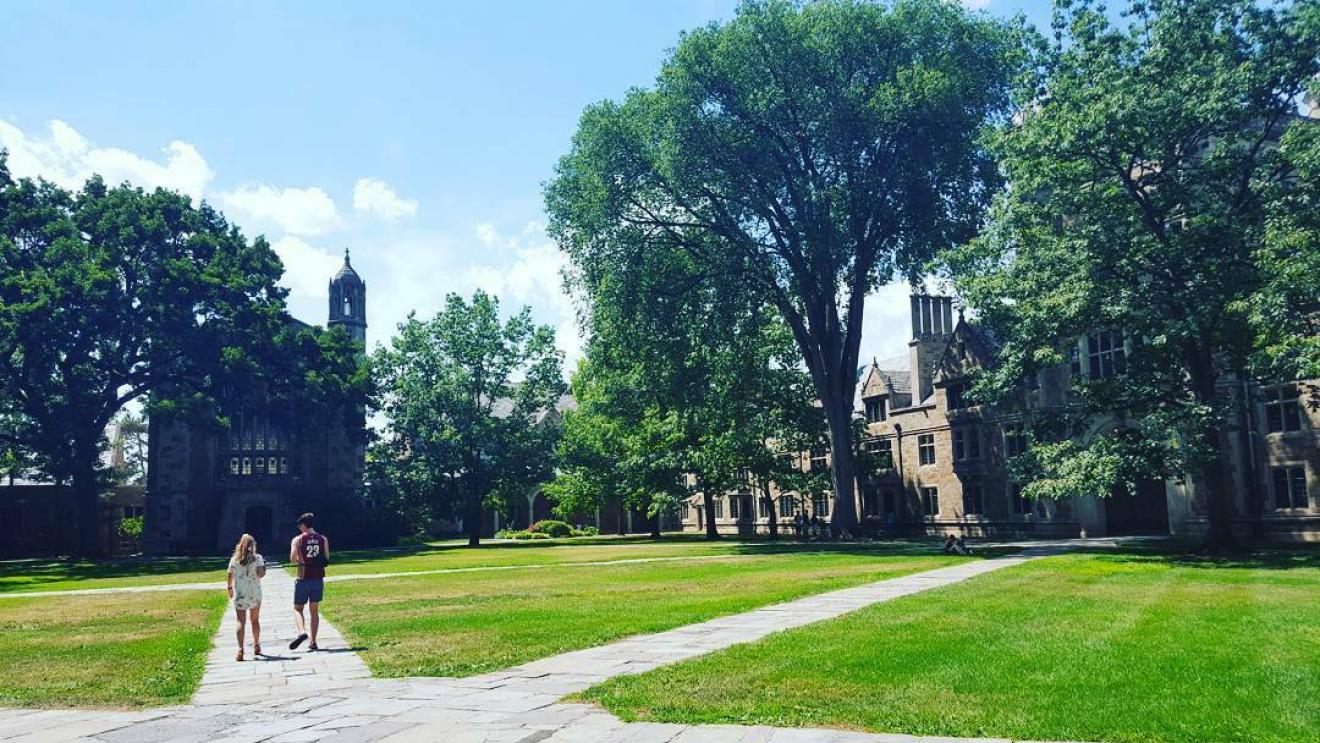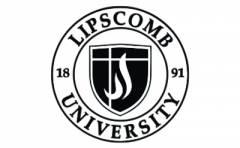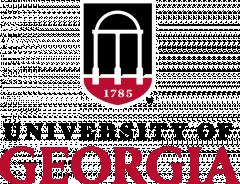Best Elementary Education and Teaching colleges in the U.S. 2026
There will always be a need for great elementary school teachers! And if you care about children and the future, elementary education and teaching could be the perfect degree path for you! Degrees in elementary education and teaching not only prepare students for careers as elementary school teachers but also to become school administrators, curriculum developers, and other education professionals.
The elementary education degree also prepares graduates for the tests and schooling required to earn a teaching credential. It’s almost always required for elementary school teachers to have a teaching credential, though this varies depending on the school. If you want to study a little of everything, elementary education is a great degree because students learn about a variety of subjects from history to math, as elementary school teachers are responsible for teaching a breadth of subjects. Along with learning how to teach academic subjects, students in this degree program may also complete coursework in child and adolescent development to understand how children learn at different stages.
Click Here to See the Best Colleges in the USBest Elementary Education and Teaching colleges in the U.S. for 2026
CUNY Hunter College offers 3 Elementary Education and Teaching degree programs. It's a very large, public, four-year university in a large city. In 2023, 124 Elementary Education and Teaching students graduated with students earning 87 Master's degrees, and 37 Bachelor's degrees.
Lipscomb University offers 1 Elementary Education and Teaching degree programs. It's a medium sized, private not-for-profit, four-year university in a large city. In 2023, 16 Elementary Education and Teaching students graduated with students earning 16 Bachelor's degrees.

University of Florida offers 2 Elementary Education and Teaching degree programs. It's a very large, public, four-year university in a midsize city. In 2023, 114 Elementary Education and Teaching students graduated with students earning 81 Bachelor's degrees, and 33 Master's degrees.
Boston College offers 2 Elementary Education and Teaching degree programs. It's a large, private not-for-profit, four-year university in a small city. In 2023, 36 Elementary Education and Teaching students graduated with students earning 26 Bachelor's degrees, and 10 Master's degrees.
University of Maryland-College Park offers 3 Elementary Education and Teaching degree programs. It's a very large, public, four-year university in a large suburb. In 2023, 58 Elementary Education and Teaching students graduated with students earning 58 Bachelor's degrees.
University of Georgia offers 1 Elementary Education and Teaching degree programs. It's a very large, public, four-year university in a midsize city. In 2023, 12 Elementary Education and Teaching students graduated with students earning 12 Doctoral degrees.

New York University offers 2 Elementary Education and Teaching degree programs. It's a very large, private not-for-profit, four-year university in a large city. In 2023, 29 Elementary Education and Teaching students graduated with students earning 16 Bachelor's degrees, and 13 Master's degrees.
University of Washington-Seattle Campus offers 2 Elementary Education and Teaching degree programs. It's a very large, public, four-year university in a large city. In 2023, 92 Elementary Education and Teaching students graduated with students earning 92 Master's degrees.

University of Michigan-Ann Arbor offers 1 Elementary Education and Teaching degree programs. It's a very large, public, four-year university in a midsize city. In 2023, 22 Elementary Education and Teaching students graduated with students earning 22 Bachelor's degrees.
University of North Florida offers 4 Elementary Education and Teaching degree programs. It's a large, public, four-year university in a large city. In 2023, 65 Elementary Education and Teaching students graduated with students earning 51 Bachelor's degrees, 13 Master's degrees, and 1 Certificate.
Find local colleges with Elementary Education and Teaching majors in the U.S.
Master's Degree in Elementary Education and Teaching
Earning an elementary education master’s degree is a great way for educators to open new career opportunities, increase salary potential, and learn new skills. According to the U.S. Bureau of Labor Statistics (BLS), the median annual wage for education occupations was $60,660 as of May 2020. Educators with a graduate-level degree often earn substantially more, especially if transitioning to administration or the private sector.
An elementary education master’s degree is a 2-4 year advanced degree for teachers and educators specializing in elementary education. It is considered a graduate-level degree and not a terminal degree as graduates can go on to earn a doctorate in education.
Elementary education graduate degrees are similar to regular master’s in education; however, they are tailored to certified educators for grades preschool through fifth or sixth.
Many elementary teachers seek a master’s in education which provides an in-depth study of a specific facet of education, examines the latest research-based education practices, and prepares graduates for leadership and administrative roles. Individuals that are interested in working as an academic advisor or school principal require a master’s degree in order to achieve their career goal.
Depending on the program, classwork can be accomplished in person or online, and many students complete their degrees while working full-time as an educator.
What Can I Do With an Elementary Education Master’s Degree?
Earning an elementary education master’s degree can open countless career opportunities beyond teaching in the classroom. However, it can also advance your current teaching career. Possible career opportunities include:
- Administrators
- Career counselor
- Corporate trainer
- Curriculum consultant
- Curriculum designer
- Curriculum developer
- Director of digital learning
- District administrator
- Educational consulting
- Educational coordinator
- Education consultant
- Education policy analyst
- Elementary school teacher
- Instructional coordinator
- Instructional designer
- Kindergarten teacher
- Literacy specialist
- Policymakers
- Private tutor
- Program director
- Researcher
- School principal
- School psychologist
- School superintendent
- Special education teacher
- Standardized test developer
- TESOL or ESL teacher
- Test prep specialist
- Textbook author
- Textbook editor
- Training and development specialist
- Vice principal
Types of Education Degree Programs
There are two main graduate degrees available to elementary educators: a master of arts in teaching (MAT) and master of education (MEd). However, there are other options available, such as a master of science in teaching (MST). Each comes with its own pros and cons, but ultimately it is up to you to decide which option is best for you.
While it is possible to get a general master’s in education, it is important to find a program that offers a specialization in elementary education. Classes will be tailored for kindergarten and elementary-aged children.
Master of Education (MEd)
An MEd is for teachers who want to move beyond the classroom. Typically, this degree works best for those interested in working in administration, curriculum planning, instructional design, or school counseling. An MEd program typically includes a specialization in areas like curriculum and instruction or administrative leadership.
Master Of Arts In Teaching
An MAT degree teaches current educators new skills so they can better teach their students. The degree also often leads to an increase in salary and could help teachers transition into a new teaching role. Some teachers use the MAT to specialize their education in a field like science or math, opening new career opportunities.
Courses in Elementary Education Master’s Degree Programs
Specific courses vary depending on the elementary education graduate program and university, but most students can expect to take similar courses throughout the program:
- Application of Elementary Physical Education and Health Methods
- Application of Elementary Social Studies Methods
- Application of Elementary Visual and Performing Arts Methods
- Assessing Student Learning
- Children’s Literature
- Cohort Seminar
- Creating and Managing Engaging Learning Environments
- Curriculum, Instruction, and Assessment
- Educational Psychology and Human Development of Children and Adolescents
- Elementary Disciplinary Literacy
- Elementary Mathematics Methods
- Elementary Reading Methods and Interventions
- Elementary Science Methods
- Essential Practices for Supporting Diverse Learners
- Foundations of Education
- Language Arts Instruction and Intervention
- Mathematics for Elementary Educators
- Preclinical Experiences in Elementary Education
- Professional Portfolio
- Schools as Communities of Care
- Supervised Demonstration Teaching in Elementary Education
- Teacher Performance Assessment in Elementary Education
- Using Educational Technology for Teaching and Learning
Skills Learned in an Elementary Education Master’s Program
The skills learned in an elementary education master’s degree program are invaluable. They help you better educate your students while also adhering to the state and national education guidelines. Oftentimes, learning can be boring and standardized for children, but earning a master’s degree can help you think of out of the box ways to help students grow and learn. You can also expect to learn:
- Administrative Skills
- Interpersonal Skills
- Speaking Skills
- Teaching Skills
- Technology Skills
How Long Does it Take to Get an Elementary Education Master’s Degree?
Elementary education master’s degree programs typically require 30-40 credits completed over the course of 2-3 years. Some teachers take longer to complete their degrees due to work schedules, family commitments, and monetary support.
Applying to Elementary Education Master’s Degree Programs
Applying to an elementary education master’s degree can be overwhelming, especially if you are working full time. From gathering references to paying application fees and submitting undergraduate school transcripts, the process can be tedious and time-consuming. However, all schools generally require the same forms and documents for the admissions process.
Remember, before considering applying for a graduate education program, you MUST hold a bachelor’s degree from an accredited institution. Without this, you cannot start a graduate education program.
It’s important to remember that all requirements and prerequisites must be met in order to be considered for acceptance. A helpful tip is making a spreadsheet of all required documents and deadlines for each graduate program. Most programs have deadlines in the spring, but sometimes applicants can turn in applications at any time in the year. Online programs typically have increased flexibility regarding application deadlines.
Admission Requirements for Elementary Education Master’s Degree Programs
- Application: Each graduate program has its own specific application found on the website. Unlike the common application in undergraduate education, there is no general graduate school application form.
- Application fee: The application fee varies by institution, though it can be waived for attending an open house event for the graduate education program or by contacting a university counselor.
- Bachelor’s degree from an accredited institution: This is a MUST for all graduate programs. You will not be considered for acceptance if you do not already have a bachelor’s degree and the required related coursework.
- Current Resume or CV: Submit an up-to-date resume with all past and current education as well as work experiences. Included in the resume should be volunteer opportunities, committees and organizations a part of, and any awards nominated for and/or won.
- Experience teaching: While this is extremely helpful, not all graduate programs require a specific amount of experience before starting a graduate program. However, it can give you an edge over other students in more competitive graduate programs.
- GRE scores: Some graduate programs require GRE scores while others do not. Some schools even let you waive GRE requirements if your GPA is high enough.
- Official Transcripts: All official transcripts must be submitted from all colleges attended. Unofficial transcripts may be submitted initially for advising purposes.
- Personal statement or essay: The personal essay is your chance to explain why you are pursuing a master’s in education. Making the essay personal can help appeal to the graduate application committee.
- Professional letters of recommendation: The specific number of required letters of recommendation depends on the graduate program, but expect to send in at least 2-3 letters. These recommendations could be from current or former colleagues, administrators, or undergraduate professors if recently out of school.
- Undergraduate GPA of 3.0 or higher: Most graduate schools require a minimum GPA of 3.0; however, depending on the program, the GPA requirement may be higher. If you hold multiple bachelor’s degrees or transferred undergraduate universities, it is important to discuss with a counselor if the GPA is specific to your education degree or is the culmination of all undergraduate coursework.
Earning an Online Elementary Education and Teaching Degree
Oftentimes, educators have many options for graduate school, including the choice of online or on-campus learning. Determining which format is best for you and your family is the first step in deciding if a program is right for you or not.
Many educators opt to complete their master’s degree online because online programs are convenient, particularly for working teachers. They offer:
- Flexibility with scheduling
- Convenience to take your class from anywhere at anytime
- Wider range of graduate programs to choose from
- Retain current employment
- Freedom to work at your own pace
- In many cases, a cheaper price tag than on-campus options
- No on campus commute
On-campus options do have a lot of benefits if it is a feasible option for you. These include,
- Face to face learning with professor
- Socialization with like minded professionals
- Consistent schedule
- Establish connections and networking opportunities
- Active discussion opportunities
Graduate programs are usually designed for working professionals. What does this mean? In-person classes are held at night to accommodate teachers’ work schedules and are consistently held on the same night(s) of the week throughout the duration of the program.
Should I Complete Courses Online?
Many elementary education master’s degrees can be completed entirely online. Accredited online programs match the quality of in-person programs while allowing you to complete courses at your own pace, and often there is increased flexibility with assignment deadlines since most students teach full time during the week.
Programs use either synchronous or asynchronous courses, likely a big deciding factor for prospective students.
Asynchronous courses do not require attendance at a set time. Lectures and class content are pre-recorded, and students interact through an online platform. Students can work on their assignments at any time of day, an appealing option for adult students with families, jobs, and responsibilities.
Synchronous courses are like attending traditional in-person classes just from the comfort of your own home. Students attend live lectures via a digital platform, and work on assignments in real-time.
How Long do Online Courses Take to Complete?
Whether the classes are synchronous or asynchronous, class time length varies by university. Courses could be as short as 4-5 weeks while the longest might take a full semester, or 14 weeks. On average, online classes last roughly 8-9 weeks; however, some programs specialize in accelerated degrees so students can complete their master’s degree quickly and efficiently.
Elementary Education and Teaching Career and Salary Overview
How Much Do Teachers With A Master’s Degree Make?
According to the BLS, the median annual wage for education occupations was $52,380 in May 2020, which was higher than the median annual wage for all occupations of $39,810. Income or salary level is highly dependent, however, on education level, the area of country, and the school system in which one teaches. Those with master's degrees tend to earn a higher salary than those with only a bachelor's degree. Teachers in inner-city and rural school systems do not tend to as high a salary as their suburban counterparts, though public school teachers tend to earn more than private school teachers. Some teachers earn extra income by picking up coaching jobs and/or working during the summer months they aren't teaching. Those who wish to make more money may try to transfer to better schools or move into administrative positions.
There are multiple opportunities for educators with advanced degrees but the most common are the following,
- Elementary school teachers, except special education, earned an average salary of $62,050
- Kindergarten teachers, except special education, earned an average salary of $59,300
The lowest 10% of elementary school teachers earned less than $40,030, and the highest 10 percent earned more than $100,480. The lowest 10% of kindergarten teachers earned less than $37,360, and the highest 10% earned more than $91,980.
Other job possibilities include and salaries include:
- Career and technical education teachers – $59,140
- Instructional coordinators – $66,970
- Special education teachers – $61,500
The National Center for Education Statistics shows the average national salary for teachers working in public schools, by the highest degree earned and years of teaching experience. For example, even if two teachers both have 6-9 years of experience, a teacher with a bachelor’s degree will earn $45,390 while a teacher with a master’s degree will earn $52,750, according to the National Center for Education Statistics.
According to the National Council on Teacher Quality, “On average, a master’s degree earns teachers an additional $2,760 in their first year of teaching compared to a bachelor’s degree. This salary advantage expands to an average of $7,358 per year by the time a teacher reaches the maximum point of the pay scale.”
Teacher Job Projections
The job outlook for teachers in the coming years is generally good. There will be a need for new teachers to replace the many who are expected to retire in the coming years. Overall, employment of kindergarten and elementary school teachers is projected to grow 4% with an expected 56,100 new jobs to be added. The majority of these jobs, specifically 51,400, are projected for elementary educators, though opportunities vary by region and school setting. Projections show better opportunities in urban and rural school districts than in suburban school districts.
Master’s in Elementary Education Paths
| Career | Salary | Projected Job Growth (2020-2030) | About the Position |
| Elementary, Middle, and High School Principals | $98,490 per year | 8% | Elementary, middle, and high school principals oversee all school operations, including daily school activities. They coordinate curriculums, manage staff, and provide a safe and productive learning environment for students. |
| Kindergarten and Elementary School Teachers | $60,660 per year | 7% | Kindergarten and elementary school teachers create lesson plans, grade students’ assignments, prepare students for standardized examinations, communicate with parents, and instruct students. |
| Special Education Teacher | $61,500 per year | 8% | Special education teachers work with students who have learning, mental, emotional, or physical disabilities. They adapt general education lessons and teach various subjects to students with mild to moderate disabilities. They also teach basic skills to students with severe disabilities. |
Teacher Personality Traits
Excellent oral and written communicator, good with children/young adults, highly organized, patient, multi-tasker, trustworthy, creative, works well with others, willing to work long and/or odds hours.
Elementary Education Master’s Career Resources
The organizations listed below are great resources for elementary educators. Each offers a unique perspective and opportunities for educators. Several are union-based while others are strictly professional organizations offering career advice and job opportunities.
List of all Elementary Education and Teaching colleges in the U.S.
| School | Average Tuition | Student Teacher Ratio | Enrolled Students | |
|---|---|---|---|---|

|
CUNY Hunter College New York, NY | 36 : 1 | 22,879 | |

|
Lipscomb University Nashville, TN | 21 : 1 | 5,047 | |

|
University of Florida Gainesville, FL | 20 : 1 | 54,814 | |

|
Boston College Chestnut Hill, MA | 17 : 1 | 15,280 | |

|
Texas Christian University Fort Worth, TX | 18 : 1 | 12,785 | |










